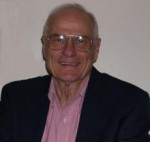One student’s quest to get Castleton a bit more green
He started by converting his car, now he’s hoping to get Castleton State College to convert as well. Student Kristopher Setchfield wants to see Castleton using alternative fuel — mainly from the recycled vegetable oil fuel he is concocting– to run the campus boilers and its vehicles.
But college officials seem more interested in converting college vehicles used by clubs and sports teams to hybrids — excluding the 12-passenger vans because a model has yet to appear on the market. Bill Allen, the Dean of Administration, is looking into finding, and buying hybrids now that the technology has been improved and tested.
And to show his support, President David Wolk has just received a hybrid vehicle he ordered six months ago.
“The technology is developed and available to us not in vans but in cars,” Wolk said. “It’s the right thing to do.”
Some college cars are eight years old and were already scheduled for replacement, Allen said. Clubs, students, and professors have asked for alternative fuel options to be looked into and Allen said he’s “had an eye on them,” especially after gas prices started increasing.
One attempt has already been spotted on campus by students. The global electric motorcars, more popularly known as the golf carts that Public Safety officers drive around campus, are powered solely by environmentally safe electricity.
But while the school seems intent on pushing the hybrid car plan, other students are trying to initiate a vegetable oil movement on campus. Setchfield and Seth Frank have made their own vegetable oil fuel in the chemistry lab and are in the process of creating a club that would build a 50-gallon vegetable oil converter so Castleton can use the leftover oil from Huden Dining Hall and Fireside Caf to “produce and consume its own sustainable fuel.” The club proposes to use the vegetable oil fuel in vehicles, campus boilers and to power a generator and create electricity.
“It would reduce the ecological footprint of the college and educate students,” Setchfield said. “It’s a win-win situation.”
Setchfield proposed to the Student Association to use money from its $60,000 fund balance to buy a diesel passenger van for clubs and sports teams to run on recycled vegetable oil. He said his suggestion, however, “fizzled” out, even though there were numerous positive responses.
“It’d be an intelligent use of SA money left over to both help the college reduce global warming contribution and get new passenger van,” he said.
Student Association member Mike Trzciensky said the SA is not necessarily opposed to the idea, but has yet to decide where the fund balance money will be spent.
Association President Steven Vail stated he was interested in hearing more about the diesel van, but said more figures are needed before a decision is reached.
Setchfield and Frank were the first students to be awarded research funding for their project. Associate Academic Dean Honoree Fleming awarded them a $1,500 grant for them to use for converting vegetable oil to usable fuel. As of right now, they have been limited to mixing half a liter in a blender until they have the 50 gallon apparatus. The fuel they are making can be run in the boilers as is, but a diesel vehicle is required to use the fuel to run a vehicle motor.
“It’s very energy efficient,” Setchfield said. “I’d love to see hybrid and diesel vehicles on campus.”
Wolk is looking into the idea of using the vegetable oil fuel in furnaces as well as pursuing the hybrid vehicles idea, though not excluding the possibility of a diesel van to run on vegetable oil, to “save money, reduce greenhouse emissions, and model responsible behaviors.”
If you are interested in helping the sustainable fuel club contact Setchfield at Kristopher.Setchfield@castleton.edu.





